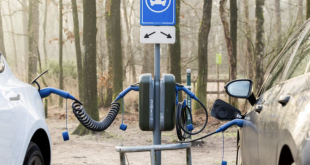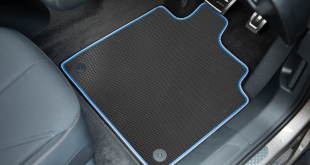
Classic car sales are unique places where history, emotion, and price converge. People who are genuinely passionate about tools and fans come from far away to see them, buy them, and experience firsthand how good or bad they are.
Many of these events now utilise large spaces that also serve as hospitality hubs, and some of them are even non GamStop casinos that offer conference space and overnight rooms for visitors. It’s fun and pertinent to do well at auctions.
A nicely fixed-up car could fetch six or seven figures. Sellers watch the room for signs of demand, and buyers plan trips to go to several sales over the course of a weekend.
Auction houses and venue selection
The places where auctions are held are chosen based on their capacity, accessibility, and the availability of services. Some are even working with areas that can be used for more than one purpose, such as meeting halls and non GamStop casinos, which can accommodate a large number of people.
These partners provide safe loading bays, ample parking for transporters, and suites for private inspections, all of which enable purchasers to inspect high-value lots immediately.
The lighting, display ramps, and on-site storage at a venue all have a direct impact on how effectively a vehicle may be evaluated, which in turn affects how much money bidders are willing to pay and how confident they are in their bids.
For high-end auctions, organisers tend to employ casino non GamStop partners to handle all the hospitality and security behind the scenes — many of which are featured among the latest non-GamStop sites for British players. This gives the consignor peace of mind that their cars and paperwork will be handled with care and attention to detail.
Bidders, brokers and the floor
Humans interact in auctions. Bidders read each other’s body language. Brokers register interest. The auctioneer sets the pace. Trust and experience in floor bidding are rewarded. Those attending the auction may have access to the paperwork to review the provenance and decide whether to bid.
In several instances involving larger or more high-profile events, casino non GamStop hospitality spaces are hired to host VIP previews and private viewings to allow serious buyers to assess items beforehand.
Brokers that handle consignments establish relationships with these locations, allowing their customers to inspect automobiles in a safe environment. This reduces the likelihood of disputes and accelerates the transfer of ownership after the sale.
Hospitality and travel logistics
Buyers who are bidding within the area or in other countries must factor in the costs of transport and lodging. Auctions that feature multiple sales on the same weekend make it easy for collectors to visit numerous rooms. Venues that provide hotels on-site make bidding excursions easier to plan.
Some auction programs collaborate with non GamStop casinos that offer integrated hospitality, transportation services, and secure parking facilities. This is because it makes things easier for them. Working with hotel partners helps auction houses reduce no-shows, meet valet and security requirements, and provide buyers with more time to examine items without feeling rushed.
Live rooms versus online lots
The market now has live rooms as well as online lots. For hybrid events, locations with strong broadcast infrastructure, including multi-purpose sites with casino non GamStop amenities, are sought.
Live auctions enable bidders to compete with one another while physically separated from each other. To avoid delays and disputes, lots are broadcast and recorded from inside the auction rooms (e.g., using low-latency feeds from the auction rooms and a locally based, reliable, on-site bidding system to handle the information).
When interest from afar rises, homes keep an eye on absentee bidder stats and change the pace to balance the energy on the floor with the demand online. Many times, the same non GamStop casinos are hired to handle both technical production and moderation, as they already organise significant events and have broadcast crews.
After-sales, shows and local impact.
After the auction, the process continues: cars are moved, shipments are planned, and local economies track the amount of money people spend on hospitality. When dealers come to town, motels fill up, and tow truck drivers and repair firms do additional sales.
Events held in multi-use locations, such as those that work with a casino non GamStop, may become yearly events, and local businesses can become used to the regular flow of auction traffic and associated auto shows.
The ripple effect is real: weekend auctions help small companies, provide seasonal employment, and offer towns a steady stream of auto fans. At the same time, organisers work on logistics to maintain a professional and repeatable market.
 Automotive Blog Automotive Blog brings you the latest news, car reviews and information on the automotive industry.
Automotive Blog Automotive Blog brings you the latest news, car reviews and information on the automotive industry.



